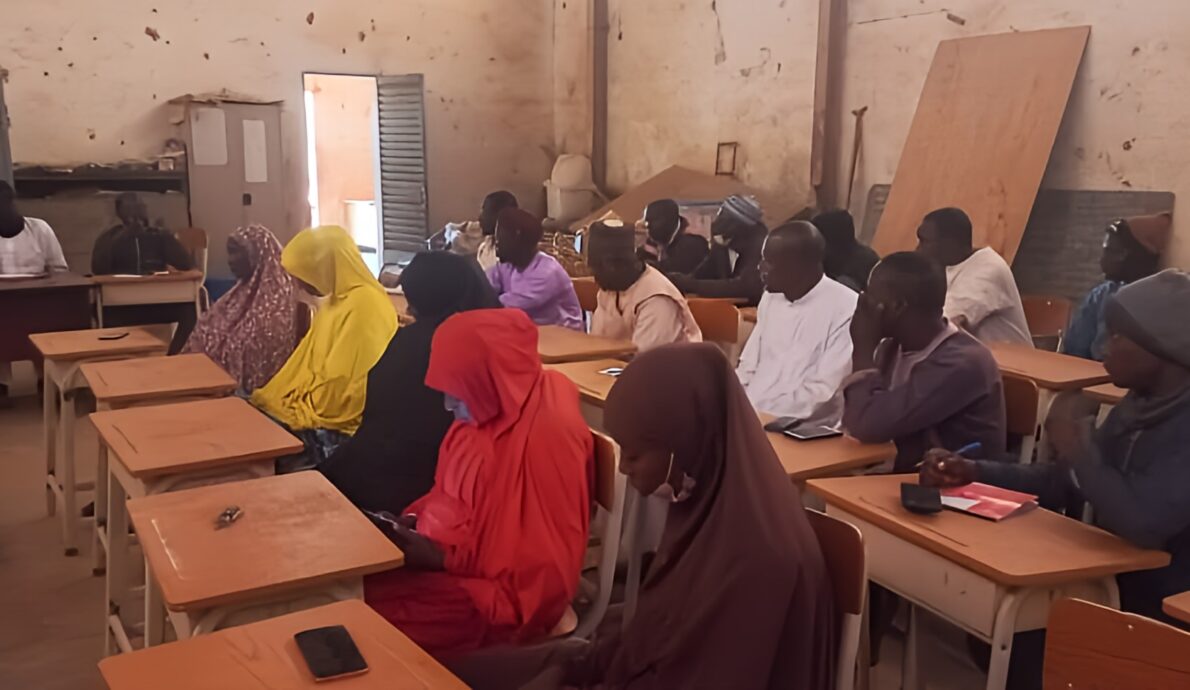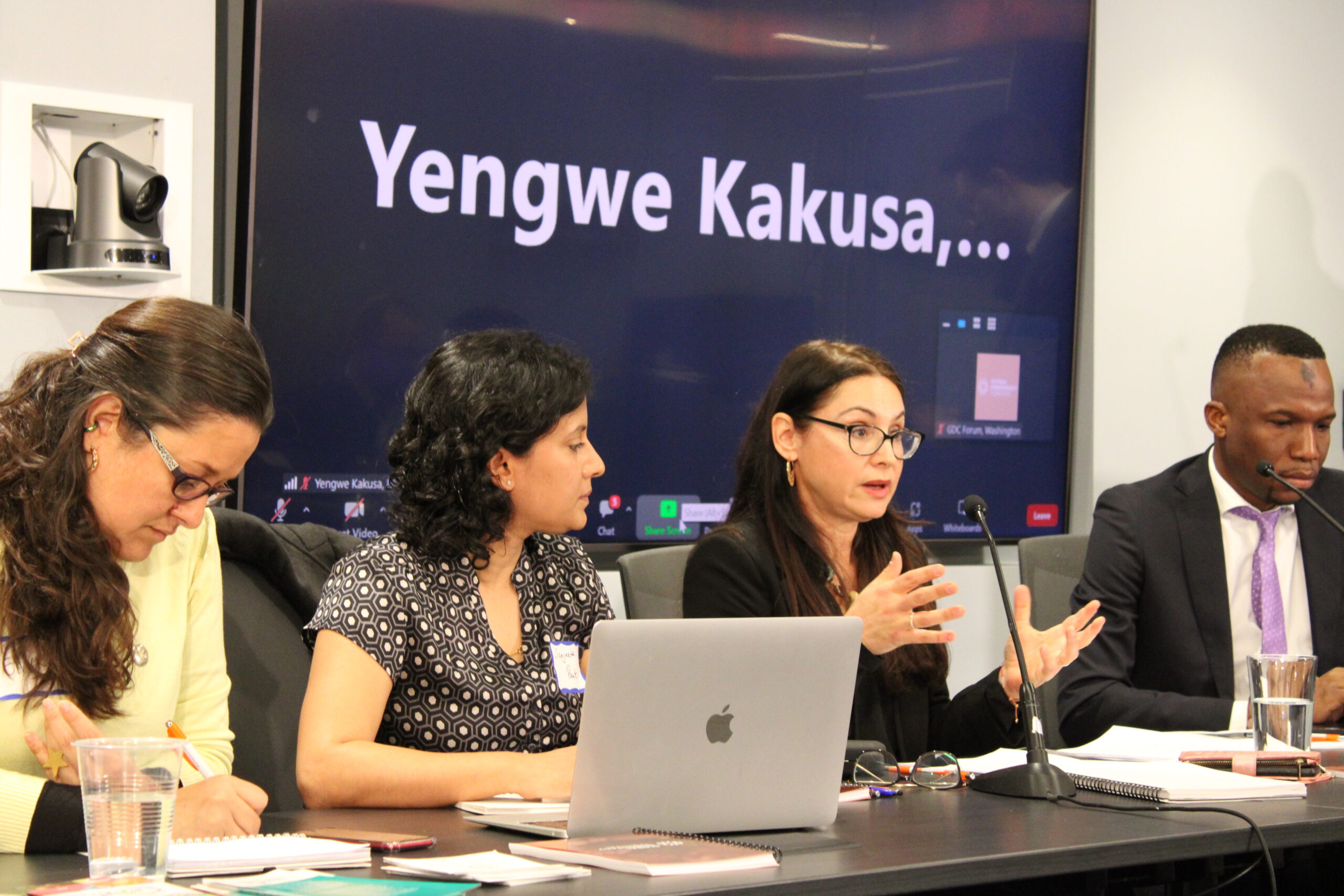
Annika Silva-Leander of International IDEA speaks on a panel with moderator Sanjeeta Pant of Accountability Lab, Gina Romero of the Red Latinoamericana y del Caribe para la Democracia, and Jimmy Kande of the Pan-African Anti-Corruption Network.
“We can never take our democracy for granted,” said Dubravka Šuica, vice president of the European Commission, speaking to packed audiences both at the nHow Hotel in Brussels and Counterpart’s Washington, D.C. office, as well as dozens more tuning in remotely.
Šuica’s opening remarks in reference to the ongoing war in Ukraine on the first day of the Global Democracy Coalition Forum were a somber reminder of the threats to democracy that exist today. While the forum, held February 28-March 1 in advance of the Summit for Democracy, included discussions on the rise in authoritarianism and democratic backsliding, the forum also offered some hope that democratic values are still popular among citizens around the world.
Later this month, the U.S. will co-host the Summit for Democracy alongside the governments of Costa Rica, South Korea, the Netherlands, and Zambia.
The Global Democracy Coalition is a multi-stakeholder coalition made up of more than 100 democracy organizations around the world. The forum provides a space for coalition members to discuss progress on Summit for Democracy commitment implementation, share progress on cohorts, assess the current state of democracy in the year since the first Summit, and develop recommendations for the post-Summit process.
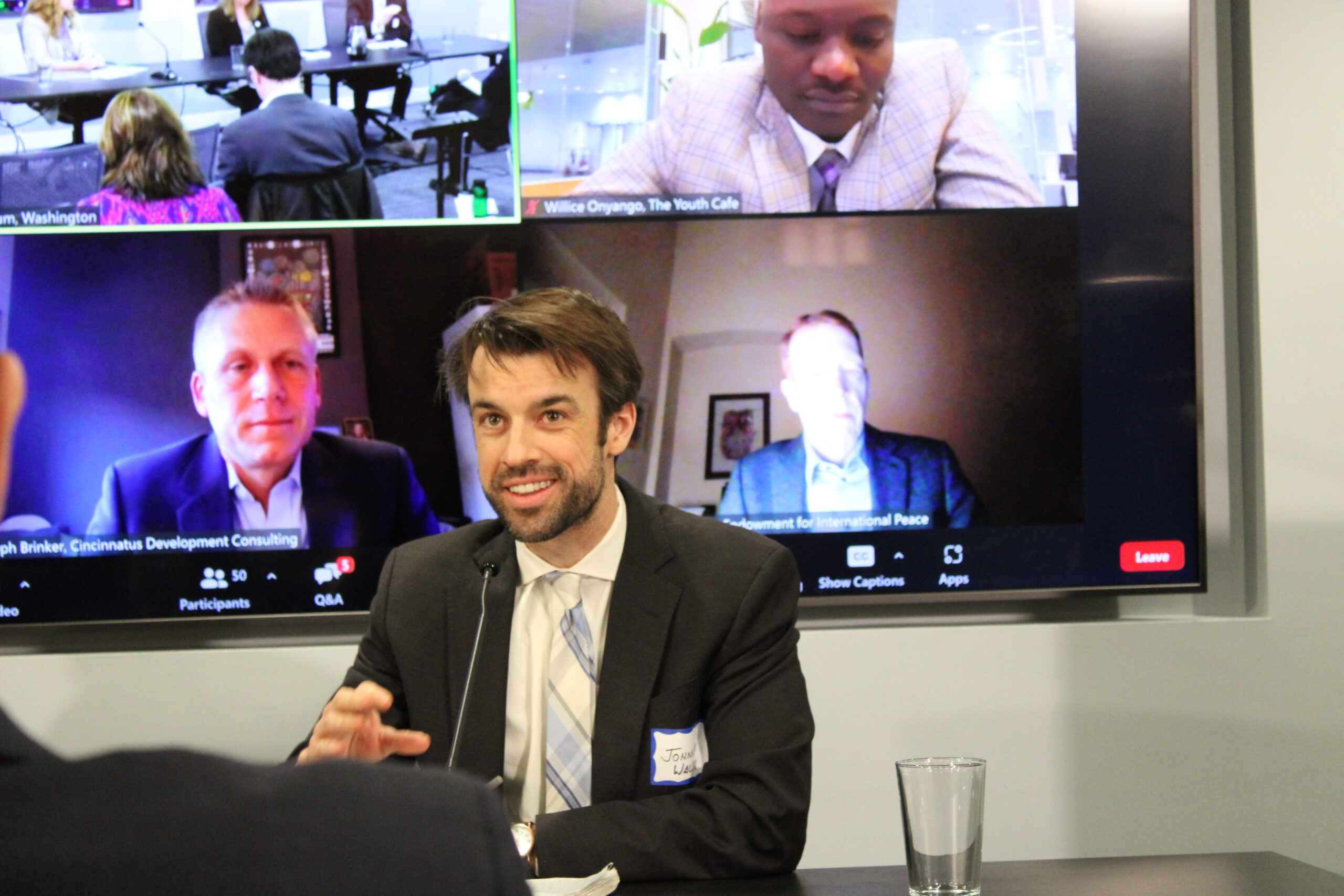
Johnny Walsh of the White House National Security Council speaking offered reflections after a forum panel at our D.C. office.
Coalition partners presented data and called for governments to engage more with civil society organizations. Several government representatives attended the forum, including Johnny Walsh from the White House National Security Council, who expressed his support for the coalition. “I’ll be delighted if the GDC has a life after the Summit,” he said. “I hope it continues to blossom.”
The forum opened in Brussels with remarks from European Commissioner Jutta Urpilainen, Šuica, Walsh, and International IDEA Secretary General Kevin Cases-Zamora. Counterpart hosted a panel called Reflections on Summit for Democracy Commitments and Achievements, featuring Annika Silva-Leander of International IDEA, Joseph Foti of Open Government Partnership, Ambassador Norm Eisen of Brookings Institution, Gina Romero of the Red Latinoamericana y del Caribe para la Democracia, Jimmy Kande president of the Pan-African Anti-Corruption Network, and Yengwe Kakusa, director of governance and planning for Zambia’s Ministry of Justice.
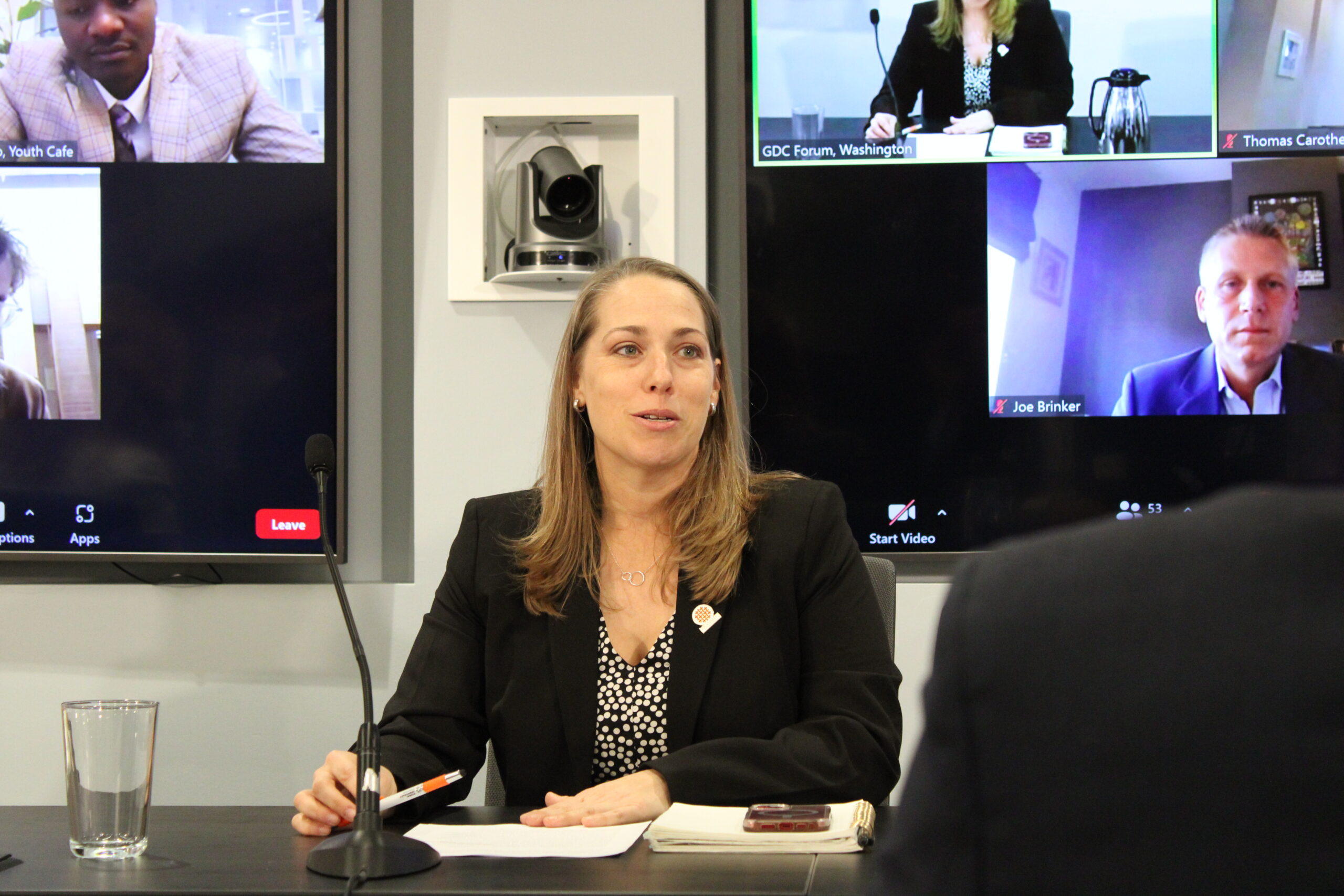
Kourtney Pompi, Counterpart’s director for civic engagement, moderates a panel at the Global Democracy Coalition Forum.
Day two of the forum was packed with more democracy discussions, including the panel Assessing the Global Democracy Landscape One Year after the First Summit, featuring Seema Shah of International IDEA, Olaf Bohnke of the Alliance of Democracies, Richard Wike of Pew Research Center, Joseph Asunka of Afrobarometer, and Pippa Norris of Harvard University.
The panel discussed the state of democracy, offering a variety of perspectives. While Shah spoke about International IDEA’s Democracy Tracker, which found that “democracy is in clear decline” with democratic growth stalling over the last decade, the Democracy Perception Index, a survey that collected more than 21 million responses, showed contrasting results. According to Bohnke, global faith in democracy remains high.
The forum also presented recommendations for a post-Summit for Democracy process during a panel featuring Thomas Carothers and Jean Scrimgeour of Accountability Lab, Joseph Brinker of Cincinnatus Development Consulting, Vukasin Petrovic of DT Institute, and Willice Onyango of The Youth Café.
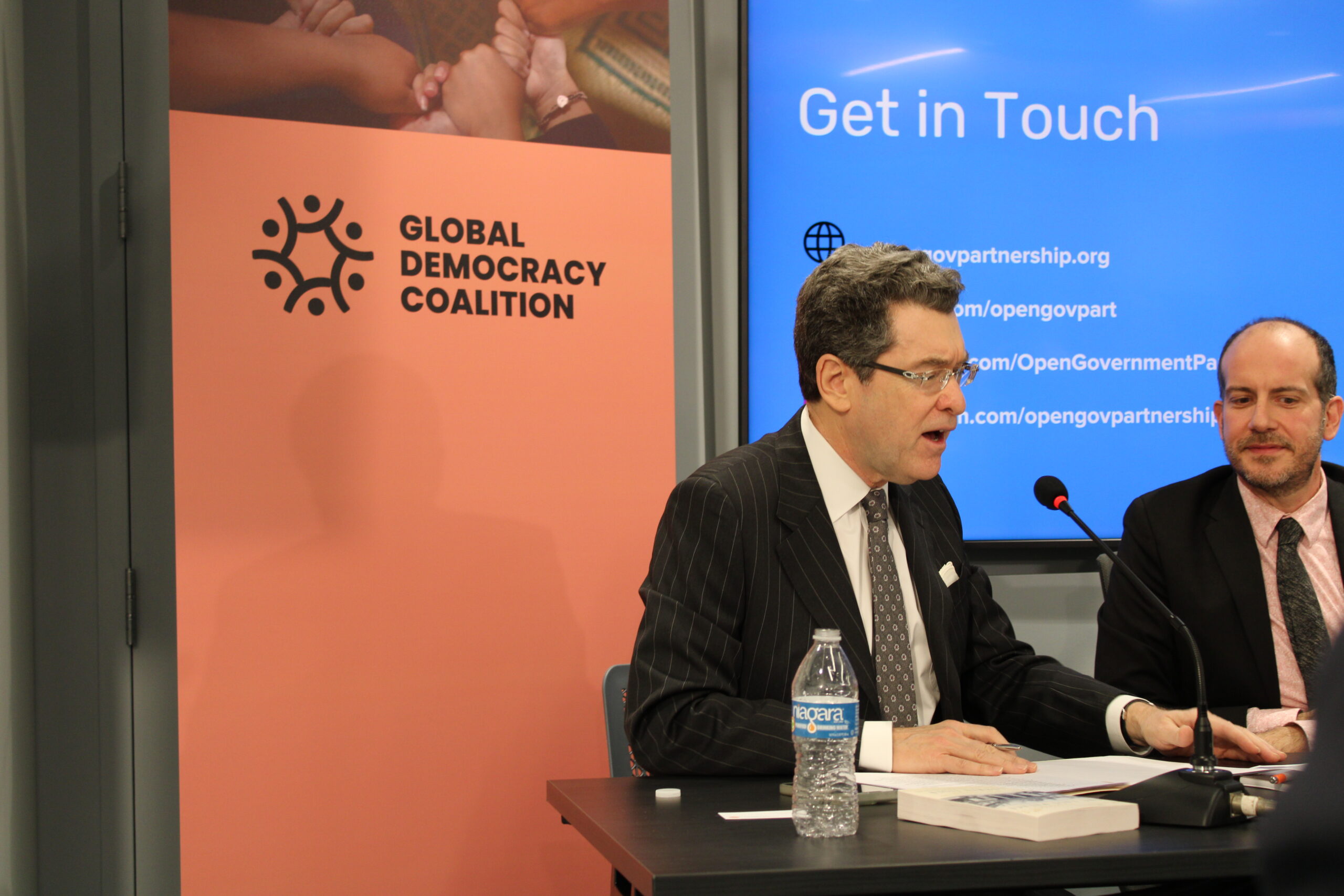
Ambassador Norm Eisen of the Brookings Institution presented at the Global Democracy Coalition Forum at Counterpart’s office.
Recommendations included strengthening the cohorts, greater inclusion of youth, women, and other marginalized groups, and more engagement with civil society and regional organizations.
Rosarie Tucci, director of Democracy, Human Rights and Governance at USAID, gave final remarks. “The last two days show where we can go with the momentum and progress,” she said.
Ann Hudock closed out the forum with a message of hope: “This gathering is a ripple in a much bigger pool … and we shouldn’t underestimate the ripple.”
Counterpart will host three panels during the Global Democracy Coalition’s Partners for Democracy Day on March 27. Click here for more information.




